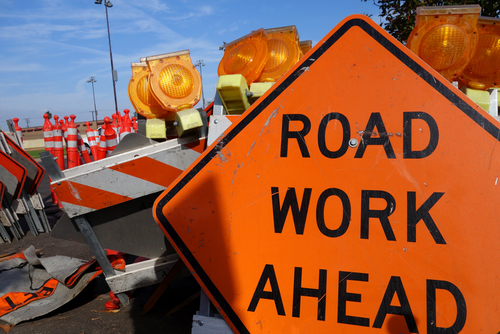
A statewide multimillion-dollar infrastructure funding package is being made available under the Rebuild Alabama Act of 2019 that will allow several cities and counties to take on a variety of local road and bridge projects, Republican Gov. Kay Ivey said last week.
The governor and the Alabama Department of Transportation (ALDOT) on Jan. 16 jointly announced the $7 million in funding as part of the newly created Rebuild Alabama Act (RAA) Annual Grant Program, which sets aside a total of $10 million off the top of the state’s share of new gas tax revenue for such local projects.
“An investment in our roads and bridges is an investment in the future of Alabama,” Ivey said. “These $7 million in funds will go a long way in helping communities across the state address various road and bridge projects.”
The grant funds are derived from a new 6 cents-per-gallon increase in the state gasoline and diesel tax implemented on Oct. 1, 2019. Another 2 cents-per-gallon increase will occur this Oct. 1 and again on Oct. 1, 2021, according to the Huntsville/Madison County (Ala.) Chamber of Commerce.
“Transportation infrastructure is vital to the economic vitality of our region and the state,” said Chip Cherry, president and CEO of the Huntsville/Madison County Chamber of Commerce. “The increase in funding for transportation infrastructure projects will make the roads safer for our citizens, support economic development, and provide one of the key foundational elements needed for future growth and development.”
The new revenues raised through the RAA gas and diesel tax increases will be distributed 66.67 percent to the state; 25 percent to counties; and 8.33 percent to municipalities, according to the chamber, which said that additional RAA revenue also will be collected from a new annual registration fee of $100 for plug-in hybrid vehicles and $200 for battery electric vehicles (EVs).
“Revenue collected for EVs will be distributed through the Rebuild Alabama Fund for use in the construction and maintenance of a modern-day public road and highway system,” the chamber said in a one-page summary of the RAA.
And the state will dedicate 25 percent of the collected EV registration funds to support an EV infrastructure grant program, which also will provide funds to municipalities, counties, universities, and other public institutions to pay part of what it will cost them to build their new EV charging station infrastructure, according to the summary.
Gov. Ivey in March 2019 signed the RAA into law the same month that both the Alabama Senate and the Alabama House of Representatives approved it. Her overall plan is to provide a long-term solution to improve transportation infrastructure throughout Alabama.
Under the approved RAA, 31 projects so far have been selected for funding totaling $7 million from ALDOT. A second award cycle later this year will distribute the remaining $3 million in funding, with notification to cities and counties coming from the League of Municipalities and County Commission Associations, according to Ivey’s office.
After the bids are taken, the governor’s staff added that all projects are expected to be under contract by the end of the calendar year.
“I am proud to see the continuing positive ramifications from the Rebuild Alabama Act,” Gov. Ivey said last week. “Soon, every Alabama citizen will feel the benefits from this additional investment in our infrastructure.”